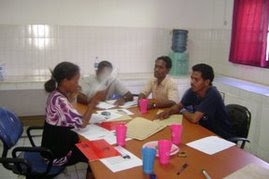
«If Instability Emerges in Timor-Leste, Xanana: "We will arrest the press."Timor Post, Dili, Wednesday 16 January 2006.Dili – Prime Minister Xanana Gusmão threatened that his side would arrest members of the press (media) if when instability emerged in the nation. Because of this he asked the media to undertake its work with more responsibility for the situation."You have to exercise more responsibility towards the environment of stability or instability. We close our eyes when in the case of small and big things you go and interview Alfredo. Perhaps because of these things instability may emerge in the country, because of you, we will arrest you," he said to journalists on Tuesday (15/1) at the Ministry for Social Solidarity, Kaikoli, Dili. PM Xanana said the press should not hide the failings of government, but they should confirm information before publishing.Xanana said 2008 is the year of reform, and because of this there must also be reform in the professionalism of the media. "The TV, Radio report that people have died, and you just report it without going and asking about it. If we are talking about reforming society, we must also talk about reforming you," said Xanana.»
Fonte: http://us.f906.mail.yahoo.com/ym/Compose?To=forum-loriku%40yahoogroups.com via Helena Espadinha (timorcrocodilovoado r@yahoogroups. com)
Fonte: http://us.f906.mail.yahoo.com/ym/Compose?To=forum-loriku%40yahoogroups.com via Helena Espadinha (timorcrocodilovoado r@yahoogroups. com)



